Feeling Lost in the Home Solutions Maze? We’ve Got a Map With Team Egan Homes!
FAQ'S
-
How do I determine the right time to sell my home?
Seniors may be unsure about the optimal time to sell. Factors such as health, financial considerations, and the local real estate market can influence this decision. Team Egan Homes and a trusted financial advisor can help assess your individual circumstances and make informed decisions about when to sell.
-
What modifications or improvements should I make before selling?
Many seniors wonder if they should invest in home improvements before selling. The decision depends on the condition of the home and the local real estate market. Simple repairs and improvements that enhance the home's appeal without significant expense are often recommended. Our team can provide guidance on cost-effective upgrades that could help in today's market.
-
How can I make the selling process less stressful?
Selling a home can be emotionally and physically taxing. Seniors often seek advice on how to streamline the process and reduce stress. This is the exact reason why Team Egan Homes was born. Our trusted team of professionals, from Estate Planners to professional organizers, can ease the burden. Planning ahead and allowing sufficient time for the transition are also crucial.
-
What are the tax implications of selling my home?
Seniors may be concerned about the tax implications of selling their home, especially if it has been their primary residence for a long time. The tax consequences can vary based on factors such as capital gains, exemptions, and changes in tax laws. It's advisable for seniors to consult with a tax professional to understand the specific implications of their situation.
-
What housing options are available for seniors after selling?
After selling their home, seniors often contemplate their next living arrangement. Common options include downsizing to a smaller home or condo, moving to an independent care community, or transitioning to assisted living. Exploring these options in advance, considering healthcare needs, and involving family members in the decision-making process can help seniors make informed choices.
FAQ'S FOR SENIORS
-
How can I talk to my parents about their future plans and care preferences?
Many adult children find it challenging to broach the subject of aging and future care with their parents. Let us help you get in front of the right professionals.
-
What resources are available to help with caregiving and support services?
Adult children often seek information about available resources, including local caregiving services, support groups, and government programs. Understanding the resources and services in their parents' community can help adult children better navigate the caregiving journey.
-
How can I help my parents downsize or modify their home for aging in place?
As parents age, their living arrangements may need adjustments for safety and accessibility. Adult children may have questions about how to assist with downsizing, aging in place in their current home, or finding a more suitable living environment.
-
What legal and financial steps should we take to prepare for the future?
Adult children often want to ensure their parents have their legal and financial affairs in order. Questions may include wills and trusts, powers of attorney, healthcare directives, and managing finances.
-
How do I balance caregiving responsibilities with my own life and work?
Juggling caregiving responsibilities with personal and professional obligations can be challenging for adult children. Seeking support from siblings, family members, and community resources and exploring options for respite care can help manage these challenges.
FAQ'S FOR INVESTORS
-
Do I need a lot of money to start Investing in Real Estate?
It’s all about your Investment Strategy. Your strategy, whether it's buying
and holding, flipping, or renting out the property, will influence the amount
of money you need. For example, buying a property to fix and flip may
require more upfront capital for renovations.
-
What is the Potential Return on Investment (ROI)?
Investors want to understand the potential financial gains from the
investment. This involves calculating the expected return on investment,
factoring in rental income, property appreciation, and any associated
costs.
-
What is the Neighborhood's Growth and Stability?
The location of the investment property is crucial and often overlooked
with first time investors. Focusing on the neighborhood's economic
stability, job market, school quality, crime rates, and overall growth
potential will help determine if the property is worth the investment.
-
What are the Current Market Conditions?
Investors closely monitor market conditions to understand trends in
property values, rental rates, and demand. They may inquire about the
current state of the real estate market, including any factors that could
impact property values or rental income.
-
What are the Financing Options and Interest Rates?
Financing plays a significant role in real estate investment. We help
Investors inquire about available financing options, down payment
requirements, and interest rates. Understanding the financial aspects
helps investors assess the feasibility and profitability of the investment.
-
What are the Potential Risks and Challenges?
We want to help Investors identify and assess potential risks associated
with any investment property. This could include market volatility, potential
property damage, legal issues, or changes in local regulations.
Understanding the risks allows investors to develop strategies to mitigate
them.
FAQ'S FOR FIRST TIME HOME BUYERS
-
How much home can I Afford?
Determining how much home you can afford is a primary concern.
Consider not just the purchase price but also factors like property taxes,
homeowners insurance, and maintenance costs. Be sure to have a clear
understanding of your budget. We can help you get in front of a Mortgage
Professional.
-
Does my Credit Score matter when getting a home?
Your credit score plays a crucial role in securing a mortgage and
determining the interest rate. Check your credit score early in the process
and work on improving it if necessary. We can help you find a trusted
mortgage broker to help you navigate this common question.
-
How much is needed for a Down Payment?
Saving for a down payment can be a significant hurdle. So, start saving
Now! The more money that you can save for a down payment will help
determine everything from interest rates, amount of home you can afford
to helping with a lower credit score. Understand the minimum down
payment requirements for the type of mortgage you're considering and
plan accordingly.
-
What are my Mortgage Options?
First-time homebuyers may feel overwhelmed by the variety of mortgage
options available. Take the time to research and understand the
differences between fixed-rate mortgages, adjustable-rate mortgages, and
other loan types like FHA.
-
Are there any Hidden Costs when buying a home?
Beyond the purchase price, there are additional costs associated with
buying a home, such as closing costs, property taxes, insurance and
potential HOA fees. Don’t forget about the actual costs when “owning” a
home, like general maintenance, repairs and unexpected concerns. Factor
these into your budget to avoid financial surprises.
-
Market Conditions
Housing market conditions can change on a dime and can impact the
availability and affordability of homes. As real estate professionals we
can provide you with the proper guidance based on current conditions.
Still Have More Queries?
Quick Links
Contact information
Phone:
Email:
Address:
26870 Beck Road Novi, Michigan 48374-1816

